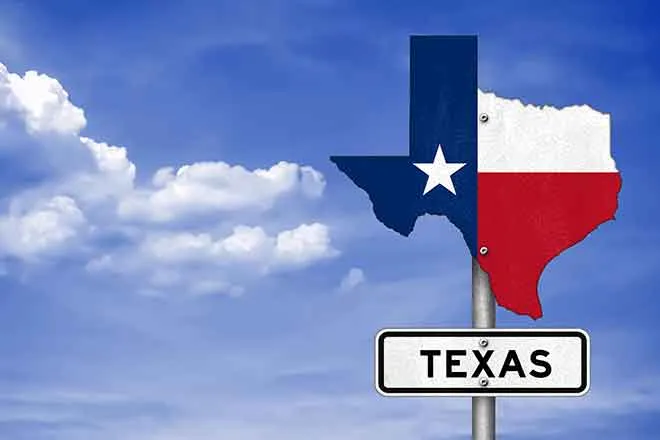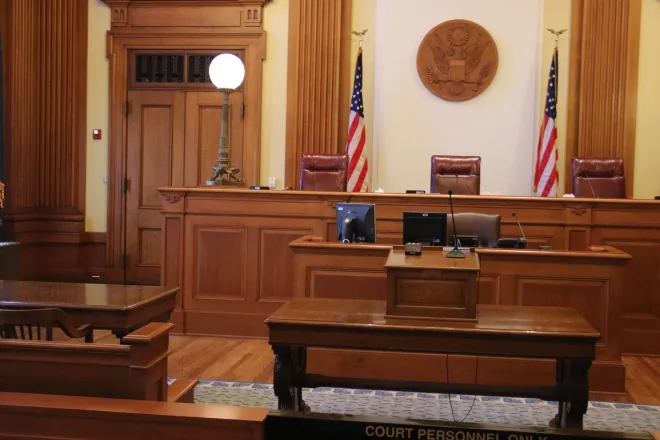
Daily Audio Newscast Afternoon Update - July 14, 2025
© INDU BACHKHETI - iStock-1336427297
News from around the nation.
9 dead, more than 30 injured in MA fire at Fall River senior living facility; West Virginia's health care system strained further under GOP bill; EV incentives will quickly expire. What happens next? NC university considers the future of AI in classrooms.
Transcript
The public news service Monday afternoon update, I'm Mike Clifford.
A nighttime fire claimed multiple lives at an assisted living facility in Fall River, Massachusetts.
Nine occupants declared dead, one more in critical condition, more than 30 others transported to local and regional hospitals in varying conditions, that from the Boston Globe.
They report five firefighters were transported for injuries that were not life-threatening.
The Fall River Fire Chief, Jeffrey Bacon said, this is an unfathomable tragedy for the families involved and the Fall River community.
And West Virginia hospitals are anticipating significant changes over the next few years following President Donald Trump's signing of that big bill into law.
The legislation slashes more than $1 trillion from Medicaid.
Fewer supplemental payments from the program will particularly impact West Virginia.
Those payments allow states to target some dollars toward large Medicaid providers to help cover the cost of care, explains Jim Kaufman with the West Virginia Hospital Association.
In the final bill, once fully implemented, we will lose about a billion dollars a year when those provisions go into effect.
It's why we have a huge impact on our efforts to provide care in rural communities.
This is Nadia Ramlagan for West Virginia News Service.
Next to Minnesota, where car dealerships might be busy these next few months with customers interested in electric vehicles, federal tax incentives are being eliminated sooner than originally scheduled, a regional consultant lays out where the industry is headed.
Under the new tax policy law pushed by the Trump administration, enhanced tax credits that bring down the cost of a new or used electric vehicle end September 30th.
They were originally scheduled to run through 2032.
Yuka Kokunen with Minnesota-based consulting firm Shift to Electric says this could hinder adoption rates in the US, but there's still global demand to transition away from gas-powered cars.
In general, electric transportation be the future.
There's no question about it.
Experts also predict a rush of EV customers before tax incentives expire which Kucanon says could limit inventory.
A buyer has to have possession of the car by the end date for the tax credit to apply.
I'm Mike Moen.
And artificial intelligence is coming to higher education classrooms and some universities are beginning to consider policies around the technology.
Jackson Bastian, assistant professor of interactive design at William Peace developed syllabus standards for the faculty that determine acceptable levels of AI use for students.
By providing a template that faculty can then take and adapt to their own courses as they see fit, gave everyone a bit of a head start so they didn't have to build something from scratch.
And it also made sure that students themselves don't have to be concerned about whether what they're doing is allowed or not.
William Peace University and Raleigh is one of the first colleges to enroll in the Institute on AI Pedagogy and the Curriculum, which started last September under the American Association of Colleges and Universities.
This is Public News Service.
A new documentary looks at ways to reduce the human and environmental harms stemming from the mining of critical minerals.
Without minerals like cobalt, nickel and lithium, there would be no cell phones, electric vehicles, solar panels or long storage batteries.
But Mira Rubio, who directed the documentary for the Trade Justice Education Fund, says people in mining communities often do dangerous work for poverty level wages.
In cobalt mines in the Democratic Republic of Congo, people, including children, who are making cents on the dollar, digging minerals that are ending up in $80,000 Teslas or iPhones, they're risking their health, and yet they may never have access to clean air or stable electricity.
She says mining has also led to widespread deforestation and toxic pollution.
I'm Suzanne Potter.
And five projects to support age-friendly communities have been selected to receive funding in Idaho.
AARP's ninth annual Community Challenge Grant Program is investing $76,000 in Idaho projects that must be developed quickly.
Participants have until December 15th to complete them.
Randy Simon with AARP Idaho says one of the projects is from Wyatt Marshall, a high school senior in a small town in Southeast Idaho.
This turns out to be an intergenerational project where a high school senior wants to build a pickleball court in Income, Idaho.
To be able to fund something like that is just great.
The other projects are a covered pavilion at a park in East Hope, a gazebo at a park in Melba, widening sidewalks in downtown Emmett, and audio and visual equipment upgrades for the Idaho Hispanic Community Center's building in Nampa.
I'm Eric Tegethoff reporting.
Finally, a Wisconsin nonprofit serving people with disabilities here if federal changes to Medicaid will impact their clients and caregivers which overwhelmingly rely on the program for their health care needs.
The nonprofit CP serves about 200 people in Northeast Wisconsin that have complex physical or developmental disabilities nearly all of whom use Medicaid to pay for their services.
Julie Tesloff is the director of Adult Day Services and says about 75 percent of clients are in wheelchairs and unable to reposition themselves.
She program CP offers is crucial to prevent patients from developing pressure sores.
A sore on the butt cost a lot of money.
It's like anywhere from 30 to $150,000.
Once one of our clients has a pressure sore, it stays with them for a long time.
So they might heal up, but they're going to be susceptible to another sore in that same area without active movement and repositioning.
She says their program focuses on functional skills training using adaptable equipment funded through grants and community support.
Starting December of 2026, most Medicaid recipients will be required to complete at least 80 hours per month of work, schooling, or community service to retain coverage.
I'm Judah Ruiz Branch, reporting.
This is Mike Clifford.
Thank you for starting your week with Public News Service.
Member and listener supported.
Find our trust indicators at publicnewsservice.org.

















